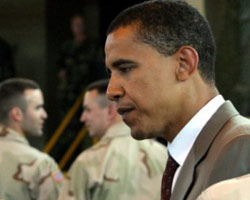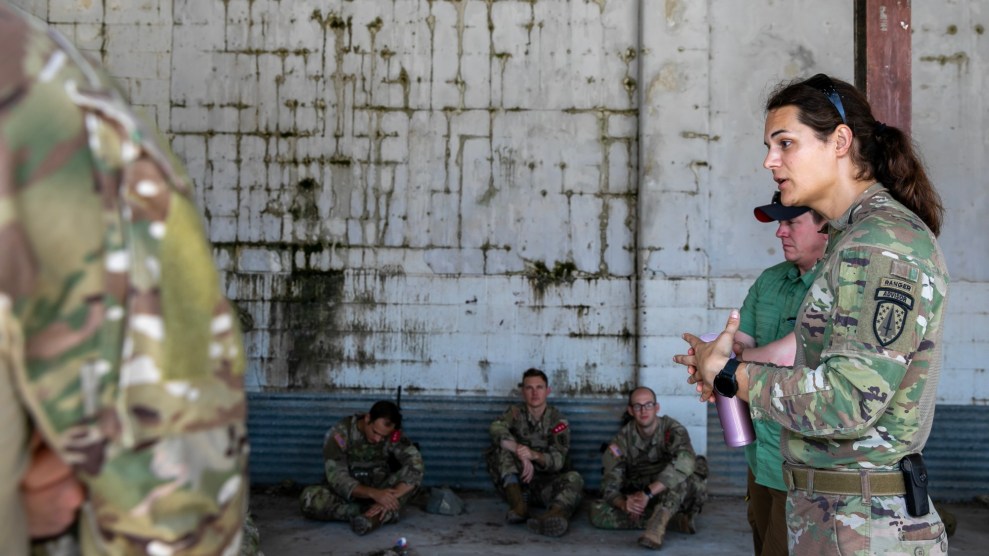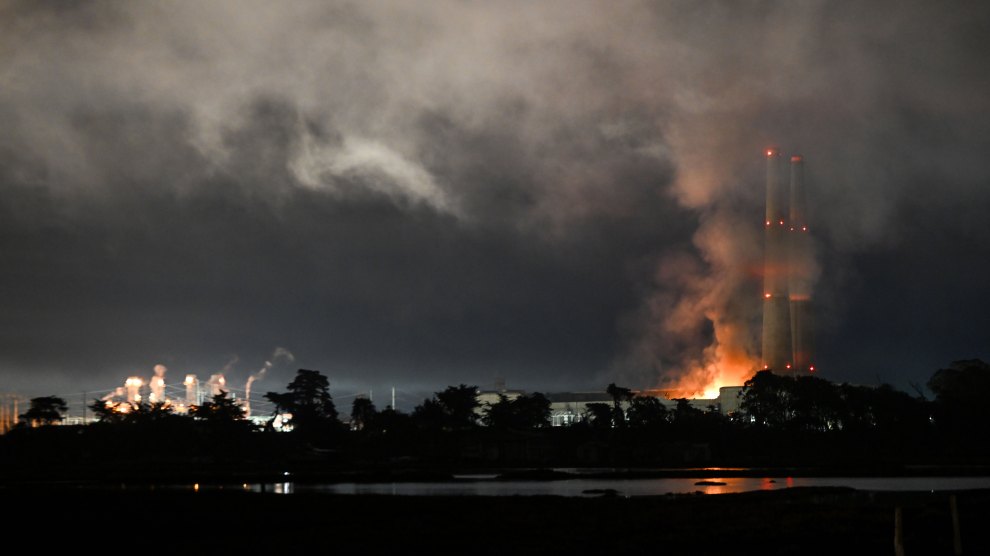
As has become painfully clear since 9/11, intelligence is only as good as the worldview of the person receiving it. The team of former intelligence professionals who have come together to advise Barack Obama describe a candidate who they believe is open-minded and intellectually inclined to absorb information—not just the recognized current threats (terrorism, Iran, Iraq, Pakistan, a resurgent and more belligerent Russia), but the ones on the horizon (nuclear terrorism, water wars, climate change and the conflicts it could generate). But they also are urging him to rethink the architecture of the intelligence community to grapple with both current and emerging threats, and to do away with the Bush administration’s legacy of excessive secrecy and its tendency to view complex international challenges in black-and-white terms.
“The world is a very complicated place and there are not always easy solutions to a lot of the problems out there,” says John Brennan, a top Obama intelligence advisor and former senior CIA official who co-founded the Terrorist Threat Integration Center and the National Counterterrorism Center, a post-9/11 effort to integrate the US government’s terror threat intelligence. “If you look at the world in black and white, you miss a lot of the subtleties out there. ‘Either with us or against’—the world is not divided into good and evil a lot of time. Despite America’s military might, a lot of these problems do not lend themselves to kinetic solutions”—i.e. the use of force. And world dynamics are likely to get more complicated and nuanced, not less, by 2025. An intelligence forecast being prepared by the US intelligence community for the next president “envisions a steady decline in US dominance in the coming decades, as the world is reshaped by globalization, battered by climate change, and destabilized by regional upheavals over shortages of food, water and energy,” according to the Washington Post.
Obama himself articulated his approach to intelligence in a speech in July. “It’s time to update our national security strategy to stay one step ahead of the terrorists,” Obama said at Indiana’s Purdue University. “It’s time to look ahead—at the dangers of today and tomorrow rather than those of yesterday.”
But even though matters such as politicized intelligence, torture, domestic surveillance, and preventing terror attacks are among the most controversial issues of the Bush legacy, intelligence has remained largely a stealth topic in the presidential campaign.
Intelligence advisers to Obama say the topic’s relative absence may actually be appropriate: “This is not an issue for the campaign,” says one former White House official now advising Obama. Adds a former senior CIA operations officer who is also a member of the campaign’s intelligence working group: “The only way we can correct it is to have a bipartisan, national interest audit of what it’s currently doing, figure out what works, and make the best recommendations and implement them. And you don’t want to see this pitfall the election.”
Aside from Brennan, the campaign’s intelligence working group (which is coordinated by former National Security Council official Rand Beers) spans a range of national security professionals who have served in senior leadership, operational and legal positions in the National Security Council, CIA, and defense intelligence agencies, including many who served both Republican and Democratic administrations. Among them: Former CIA deputy director John McLaughlin, former senior CIA operations officers Art Brown and Jack DeVine, retired Ltn. Gen. Claudia Kennedy, retired Ltn. Gen. and former head of the Defense Human Intelligence Service Donald Kerrick, former CIA lawyer and special advisor to the CIA director Kenneth Levitt, former CIA general counsel Jeff Smith, former CIA Near East division chief Robert Richer, and former CIA officer Valerie Plame Wilson. Former CIA lawyer and Clinton-era NSC official Mary McCarthy has stepped back from her previous role coordinating the group due to private sector work demands. One participant described the group’s priorities for a prospective Obama administration to me this way: “The intelligence community is a complete mess. Intelligence reform—try to fix it. Improve morale. CIA is dysfunctional. Rectify a lot of stuff that was done by executive order in secrecy, and bring more transparency. Better protection of civil liberties. Improve oversight of CIA on these activities.”
Meanwhile, national security experts in the McCain camp characterize their candidate as a Washington veteran who doesn’t need a working group to advise him on the issues. “John has been in town for three plus decades,” says Gary Schmitt, a former executive director of the President’s Foreign Intelligence Advisory Board who occasionally contributes advice to the McCain campaign. “McCain is his own guy and he has been his own guy. McCain can pick up the phone and call [former deputy secretary of state] Rich Armitage whenever he wants.”
But some of Obama’s intelligence advisors say their experience with the recent administration has shown that leaders who think they already know it all can lead to disaster. “Old man Bush was a great guy,” says one veteran intelligence officer now supporting Obama, who requested anonymity. “He was truly interested and sensitive to intelligence. But this Bush administration has done terrible damage to the intelligence business. They have operated a perpetual campaign, treated intelligence as a political tool, and never fully appreciated why it must be non-partisan and objective and can’t be tampered with.”
“It’s time,” he continued, “for a very serious change.”
Want more? Read the following intel stories by Laura Rozen, national security correspondent for Mother Jones.
CIA Veterans Are Scared of McCain
Hollywood and the CIA: The Spook Stays in the Picture
Watercoolered: the CIA’s Double Secret Probation
The Story Valerie Plame Couldn’t Tell
Defending Valerie Plame: Who is this Punk?
Fixing the Post-Bush Nation: Interviews With Former CIA officials:
Milt Bearden: The Bush legacy, in its most reduced and understandable form, will be that the limits of American democracy, and all its institutions, have been exposed.
William D. Murray: The CIA’s greatest strength—and why the Department of Homeland Security will be hard to fix.
Paul Pillar: The peril of waging war on a credit card.
Valerie Plame Wilson: Why we need to stop outsourcing the CIA, fast.















